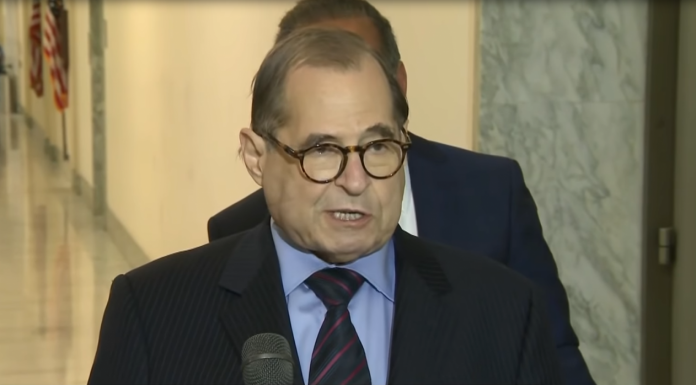(Headline USA) House Democrats tipped their hand to the true motivations behind a lawsuit that the US Supreme Court was expected to hear, which argued that they should be given access to secret grand jury testimony from special counsel Robert Mueller’s Russia investigation.
Douglas Letter, the top lawyer for the House, had asked the court to put off arguments scheduled for Dec. 2. The court on Friday agreed, removing the case from its calendar.
The sudden disinterest in the case comes as little surprise with Democrats now operating under the presumption that former Vice President Joe Biden will take office in January, despite several pending legal challenges.
Biden is, himself, believed to be under investigation for his family’s foreign dealings related to the Ukrainian energy company Burisma and China’s CEFC.
The FBI took the rare step of confirming its probe after questions surfaced about why it had confiscated a laptop of Hunter Biden that was abandoned at a Delaware computer shop.
The laptop’s hard drive contained damning evidence of potential criminal conduct, including confirmations of the Burisma scandal that President Donald Trump was impeached by the House Democrats for asking Ukraine to investigate.
Meanwhile, the Democrats had sought to leverage their own politically motivated probes into a debunked conspiracy theory that Trump’s 2016 campaign had colluded with Russia.
Mueller’s report concluded it had not—but that didn’t stop the opposition party from wanting to dig up additional dirt from the classified testimony. Trump’s attorneys contended that it not only would undermine the secrecy of the grand jury process, but that the House Judiciary Committee had no compelling legislative purpose for obtaining it.
It was long suspected that if Trump were no longer in office, the case would be rendered moot since the purpose behind it was strictly political.
Judiciary chair Jerrold Nadler, D-NY, initially sought the material in the summer of 2019 as part of the committee’s sour-grapes investigation of possible misconduct by Trump—including whether he obstructed Mueller’s investigation.
Democrats claimed that Mueller’s 448-page report, issued in April 2019, had “stopped short” of reaching conclusions about Trump’s conduct to avoid stepping on the House’s impeachment power but that he otherwise would have recommended prosecution.
Mueller, however, contradicted those claims during testimony before the Judiciary Committee.
After the House’s entirely unrelated impeachment effort in the Burisma matter—which resulted in Trump’s acquittal by the Senate—a federal appeals court in Washington revisited the Mueller issue in March, ruling that the materials should be turned over.
But doing so could now set a dangerous precedent for the Democrats by empowering future Republican majorities to wage political warfare through the House’s inferred oversight functions.
Letter had told the court in a written filing that the next Judiciary Committee, which takes office in January “will have to determine whether it wishes to continue pursuing the application for the grand-jury materials that gave rise to this case.”
While the presidential election remains in dispute, Democrats are currently projected to hold a narrow lead in the House, despite having lost several seats.
Adapted from reporting by the Associated Press

